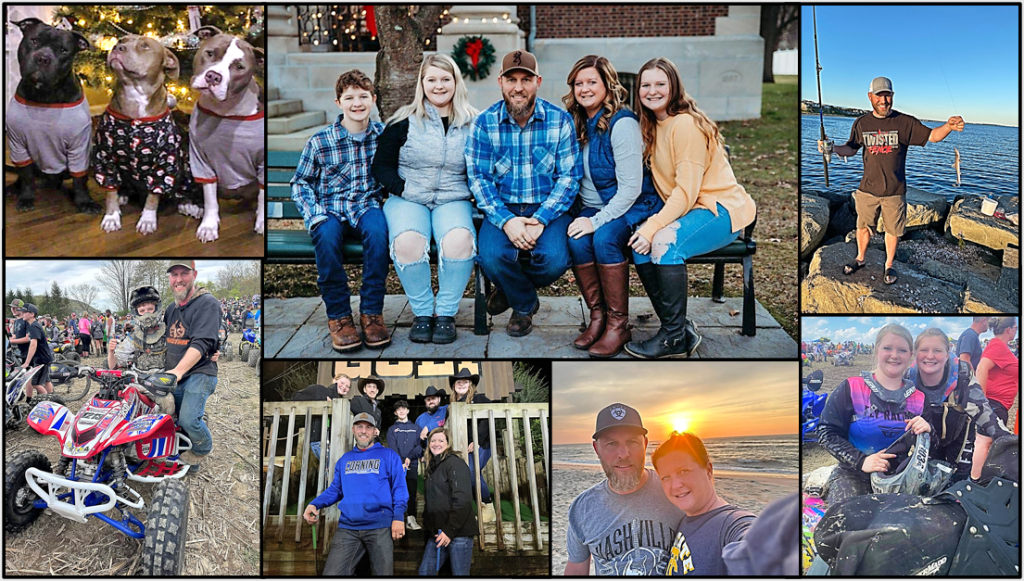June is National Safety Month, a recognition dedicated to raising awareness about workplace health and safety in the U.S. We spoke with Tim Streeter, HSER Specialist – Marcellus, to learn about his path to Chesapeake, the company’s adoption of Serious Incident or Fatality (SIF) indicators, and what he does in his spare time.
Describe your journey to Chesapeake.
For me, the journey to Chesapeake seemed unlikely for a while. I grew up in a little town in New York, just across the Pennsylvania border — my graduating class had only about 60 people. I went to college, received my BS in Business with a concentration in Information Systems, and then began working at IBM. I got laid off after Sept. 11, 2001 — a tough time to find work. I had a young family to support, so I took a job as a laborer at a KraftMaid kitchen cabinet factory for minimum wage. As I worked my way up to department supervisor, the oil and gas industry arrived in northern PA.
The industry was appealing to me, but I wasn’t sure where my background and skillset would fit in until I followed a former colleague to Cudd Energy Services in their HSER department. After two years there, I was fortunate enough to land a position as an HSE field representative at Chesapeake, and the rest is history. I have since obtained and maintained a Certified Safety Professional (CSP) certification through the Board of Certified Safety Professionals (BCSP).
This industry can be very complex to those unfamiliar with it — how would you describe your role as HSER Specialist to a friend or neighbor? What would you want them to know?
I agree, and I’d add “intimidating” to those who are unfamiliar with it. I always try to blend the scary, complex “stuff” with the cool “stuff,” like how beneficial what we do is to the lives of everyday people. The oil and gas industry positively touches everyone in some way or another, and I always try to help my family and friends see that part of it. As an HSER professional, I tend to also add a point to the conversation about all the measures our industry takes to keep people safe and our environment clean.
Tell us about the focus on SIF.
A focus on the SIF program allows us to more proactively think about hazard exposure and preventative measures by controlling exposures. Chesapeake already has a great HSER system for incident management, categorization, severity measures, STOP Work and others — so the new focus wasn’t due to a lack of a great existing foundation.
Adopting SIF takes us to the next level. First, it focuses on having our leadership spend time at the workface to understand how work gets done and placing safety ownership in the hands of field personnel. This was largely happening already, but SIF formalizes the process and provides specific training.
Secondly, the SIF program primarily focuses on how we, as individuals and as an organization, think about what could happen, as well as ways that we could then address those issues. The program emphasizes seeking and identifying SIF-level hazards through field observations and conversation; but, during this seeking process, hazards of all levels are discussed and brought to awareness and controls to the hazards are verified.
What drives the Marcellus team’s commitment to safety?
I’ve said it many times before: our Marcellus operational team members are second to none and that is the key to our success. We’ve certainly had some growing pains, but ultimately, our core team has remained in place for almost a decade and has been continuously working to drive safety excellence into all our operations.
Another differentiator for our Marcellus operations is our employee ownership of safety. The state of Pennsylvania is heavily regulated on the environmental front, so our local HSER staffing has always been more geared toward that. As such, the HSER safety personnel focus on being advisors and educators to our operations team, who then takes ownership and applies what they’ve learned to their work. It’s a practice that has proven to work well for us.
I’ve always said that our greatest opportunity to build and maintain a strong HSER culture is not to add more safety folks, it’s to create more safety folks by educating and empowering our field personnel to take ownership of it.
What do you like to do in your free time?
What free time? Kidding! My favorite thing to do is hang out with my family. Usually, I’m working on or building something because I can’t sit still, but just being around them — even when we’re not doing anything — is what makes me feel most relaxed. We love to camp and spend most of our summer at the ATV races — something we’ve been a part of for almost 20 years. To unwind, I enjoy building ATV and dirt bike race engines as well as XC ATV’s; everything from the engines to the suspension. I’m mostly self-taught and it’s very gratifying to watch a machine that I’ve built perform on the track.
